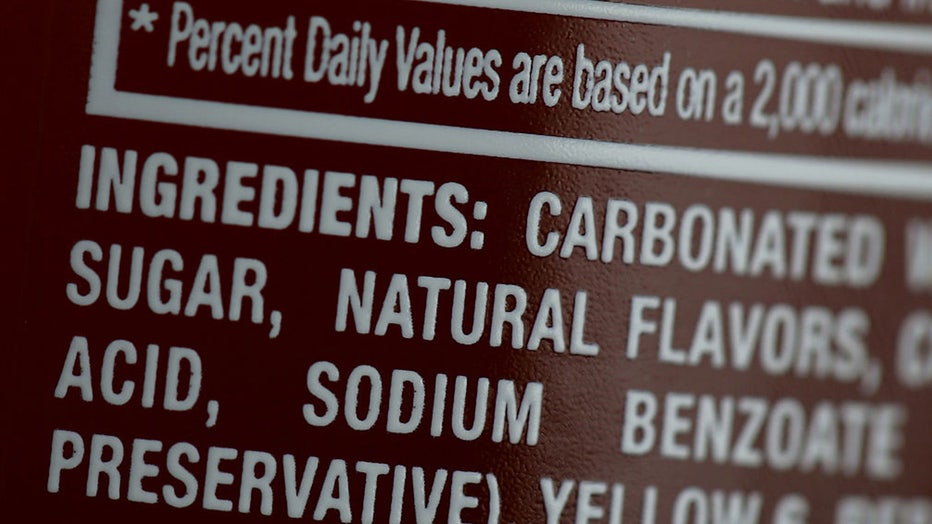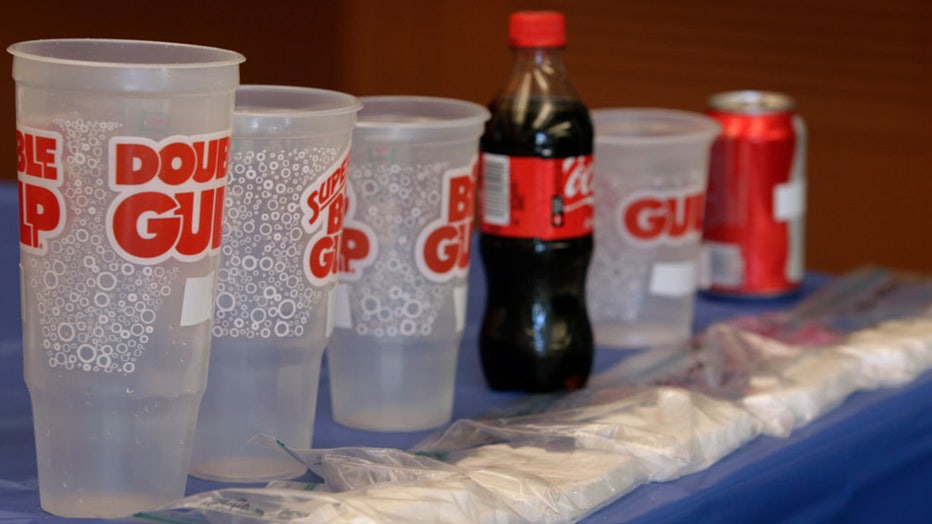Soda taxes made sugary drink prices rise and sales fall in cities that tried them, study finds
FILE - A customer walks past shelves of soft drinks at the Berkeley Bowl West market in Berkeley, Calif. on Thursday, Nov. 6, 2014. (Paul Chinn/The San Francisco Chronicle via Getty Images))
Sales of sugary drinks plummeted by about one-third across five U.S. cities after they started taxing those products, a study published Friday found.
Soda taxes adopted in each city pushed sugar-sweetened beverage (SSB) prices up and led to a decline in sales that lasted as policymakers intended, according to the study published in the journal JAMA Health Forum.
Researchers say their findings show soda taxes are an effective policy tool to help consumers cut down on their sugar intake, but the beverage industry opposes them.
The five U.S. cities examined were Boulder, Colorado; Philadelphia; Oakland, California; Seattle and San Francisco. Tax amounts levied on sugary drinks in these cities ranged from 1 to 2 cents per ounce. For a 2-liter bottle of soda, that adds as much as an extra $1.36 in taxes to the price.
KEY MEDICAL GROUPS PUSH FOR TAX ON SODA, SUGARY DRINKS FOR FIRST TIME
Previous studies on the impact of soda taxes have looked at one taxed city compared to a control city with no taxes, researchers said. This study differed by analyzing the composite effect of SSB taxes in multiple cities to paint a picture of what could happen if soda taxes were more widespread, lead author Scott Kaplan, an economics professor at the U.S. Naval Academy, told NPR in an interview.
"SSB excise taxes were associated with large, consistent declines in SSB purchases across 5 US taxed cities following tax-driven price changes," the study said.
AMERICANS IN THESE STATES WILL PAY LESS IN TAXES THIS YEAR

FILE - Sugar is listed in the ingredients of a bottle of soda that is displayed in a cooler of a food truck on June 10, 2015 in San Francisco, California. (Justin Sullivan/Getty Images)
"The results show shelf prices of SSB products increased by an average of 33.1% (1.3¢ per oz) in the years following SSB tax implementation, corresponding to a 92% price pass-through rate from distributors to consumers. Volume sales fell by 33.0% during the same time frame, without evidence of changes in cross-border shopping in untaxed adjacent areas."
The authors noted that previous studies have found that a 15% to 20% increase in price or decrease in consumption of sugary drinks led to significant health benefits, including reductions in heart disease, strokes, diabetes and obesity.
RABID FOR TAB: PETITIONERS PLEAD WITH COCA-COLA TO PUT CLASSIC ONE-CALORIE BEVERAGE BACK ON SHELVES

FILE - A display illustrates the amount of sugar contained in soft drinks at a rally to launch a campaign to tax sugar-sweetened beverages in San Francisco, Calif. on Saturday, Feb. 1, 2014. (Paul Chinn/The San Francisco Chronicle via Getty Images)
"This study estimated a 33.1% increase in price and a corresponding 33.0% decrease in volume, suggesting health benefits at least as substantial as those found previously," the authors wrote.
Additionally, soda taxes may prove cost-effective by reducing medical costs to treat diseases caused by consuming too much sugar, the researchers said.
GET FOX BUSINESS ON THE GO BY CLICKING HERE
However, the beverage industry has argued against "discriminatory" taxes on their products. The American Beverage Association, an industry trade group, has said taxes limit consumer choice and that, over time, free market forces have incentivized companies to offer reduced sugar or sugar-free options to consumers.
"The fact is taxes won’t make people healthier, just poorer," ABA states on its website. "It’s why we are working with national and local public health organizations on comprehensive efforts to reduce sugar consumption in communities where it’s most needed."

